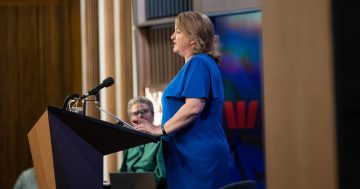 A rise in turnover in the New Zealand Public Service should be a huge wake up call for the Government, the country’s largest union, the Public Service Association (PSA) has warned.
A rise in turnover in the New Zealand Public Service should be a huge wake up call for the Government, the country’s largest union, the Public Service Association (PSA) has warned.
Annual figures released by the Public Service Commission show average turnover rocketing to a historic high, with 17.3 per cent of workers leaving the bureaucracy in the 2021-22 financial year.
Describing the figures as “simply shocking” National Secretary of the PSA, Kerry Davies said if that kind of turnover applied to any business there would be some serious questions asked about pay and working conditions.
“Some of this is clearly pent-up turnover post-COVID, but it underlines how far in a tight labour market Public Service pay has fallen behind the private sector,” Ms Davies (pictured) said.
The data shows median salaries rising 3.3 per cent, compared to a 7.1 per cent rise in the private sector.
She said the Government was not blind to the problem.
“Even the Defence Ministry admitted recently that it was failing to retain enough Defence Force staff because pay was better in the private sector,” Ms Davies said.
“People are leaving the Public Service for that reason and many vital jobs are not being filled.”
As a result, services were suffering.
“We know of cases of burnout, of excessive hours being worked just to keep delivering the same number of services,” Ms Davies said.
“This is across the Public Service from hospitals through to Community Corrections,” she said.
“The challenge is ensuring we keep providing the services New Zealanders need when the private sector is attracting so many skilled people from critical areas in the Public Service.”
Overall numbers employed in the Public Service fell by 1.2 per cent in the year to 30 June — 700 fewer workers in total partly due to the unwinding of recruitment for the pandemic.
There were significant increases in areas such as servicing new immigration settings to attract skilled workers, front-line learning support specialists and those helping improve environmental standards and preparing for climate change.
Wellington, 22 October 2022











